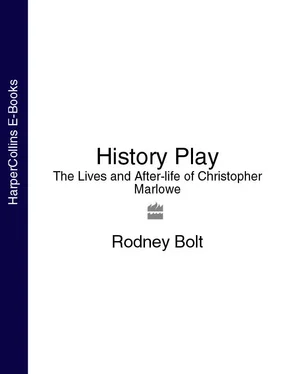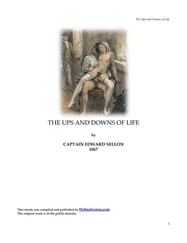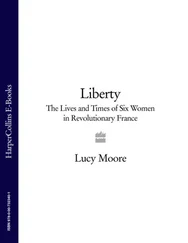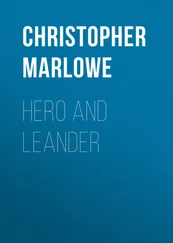In 1568, when Christopher was four, his sister Mary died – leaving him as the eldest child and, for a while at least, the Marlowes’ only son. It was a hard year for the family. Katherine gave birth to another son at the end of October, but he survived only a few days. John’s business, however, was doing well enough for him to take on a third apprentice, Richard Umbarffeld. But it was neither to Richard nor his fellow apprentices Lore Atkynson and Harman Verson that little Christopher looked as a role model. Christopher’s earthly paragon had walked into the shop when the lad was three, to get a pair of new shoes. Stephen Gosson was about to enrol at The King’s School, quite a step up for a grocer’s son, and one that evidently warranted being better shod.
According to tradition, the school, which occupied part of the cathedral precinct, had been founded by Archbishop Theodore in the year 600. What is known for certain is that it was re-established and given its royal title by Henry VIII in the 1540s, and that by Marlowe’s time it enjoyed a brilliant reputation. Stephen, who was thirteen at the time he enrolled, later described the little boy he encountered in the cobbler’s shop as a ‘prating, parlous boy’ with a ‘sharp-provided wit, ingenious, forward, capable’ – a babbling, shrewd boy with a quick wit, clever, precocious and gifted.* The lad could already read well. John Marlowe, himself educated beyond his station, had taught Kit using his own old horn-book – a suitably indestructible reading aid comprising a tablet of oak inscribed with the alphabet and Paternoster and covered with a protective sheet of transparent horn. It was an English invention, and John would himself have used it at a ‘petty’ or ‘ABC’ school, which (not being quite as ‘forward’ or ‘capable’ as his son) he would have attended from the age of four. Possibly he had also kept his ABC and Catechism , a volume combining the Lord’s Prayer, the Apostles’ Creed, the Ten Commandments and short catechistical exercises, which was the follow-on from the horn-book (cf. ‘to sigh like a school-boy that had lost his ABC’, Two Gentlemen of Verona II i, and ‘That is question now;/And then comes answer like an Absey book’, King John I i, and the pedantic Holfornes who ‘teaches boys the horn-book’ in Love’s Labour’s Lost ).
Writing was an altogether different matter. It was not a skill taught at the ABC school, though we do know that John Marlowe could write a few words – he was sometimes called in during business negotiations as a witness, or to draw up inventories, and in 1589 was elected to the responsible position of warden and treasurer of his guild, the Shoemaker’s Company (an office he held with characteristically disastrous consequences, being completely unable to balance the books at the end of the year). The usual recourse was for townspeople to call on a peripatetic scrivener, or the local clergy (‘a pedant that keeps a school i’ the church’). Unfortunately for St George’s, its rector, the Reverend William Sweeting, was, as William Urry reveals, none too literate, leading to his parish registers becoming muddled. Nor, it seems, was he much good at preaching, bringing in another clergyman to do it for him or encouraging his flock to go to the cathedral and listen to the sermons there.
These regular cathedral appearances may be the reason that, a year after starting ABC school in 1568, Christopher left and came under the private tutelage of Thomas Bull, the cathedral organist and choirmaster, who was a neighbour of the Marlowes. Certainly, Christopher hated the ABC school. The monotony of the lessons blunted his quick mettle, and he was indeed the ‘whining school-boy, with his satchel/And shining morning face, creeping like a snail/Unwillingly to school’ ( As You Like It II vii 145). He also developed a lasting scorn for his windy Welsh schoolmaster, and was to lampoon him as the pedagogue cleric Sir Hugh Evans in The Merry Wives of Windsor . (William Urry points to what he calls the ‘strong Welsh contingent’ of Davys, Joneses, Vaughans, Williamses and Evanses that along with Germans, Italians, the Spanish, French, Dutch and Walloons made up the extraordinarily ethnically diverse population of Canterbury.)
Where the money to leave the ABC school and study under Thomas Bull came from is not clear. Though John Marlowe was frequently in court over debts and financial squabbles with his neighbours, he seems also to have been a bit of a ‘ Johannes factotum ’, a Jack of all trades, dipping into all manner of affairs. City records offer hints of prosperity alongside proof of poverty. Perhaps the newly made freeman, upwardly mobile and himself benefiting from his learning, made his son’s education a financial priority. As Richard Mulcaster (the schoolmaster who championed the teaching of vernacular English, favoured proper schooling for girls, and encouraged music and drama in education) wrote in 1581: ‘The midle sort of parentes which neither welter in to much wealth, nor wrastle with to much want, see-meth fittest of all … to bring forth that student, which must serve his countrey best.’ Or perhaps Thomas Bull knew talent when he saw it and Christopher, like an exact contemporary of his, one R. Willis in Gloucester, moved in as one of the pupils who boarded with his new Master:
The Master Downhale having very convenient lodgings over the school, took such a liking to me, as he made me his bedfellow (my father’s house being next of all to the school). This bedfellowship begat in him familiarity and gentleness towards me; and in me towards him reverence and love; which made me also love my book, love being the most prevalent affection in nature to further our studies and endeavours in any profession.
Julia Wells suggests it was Christopher’s singing as much as his learning that attracted Bull’s attention, and indeed, even when his voice ‘got the mannish crack’, it was to develop into a fine tenor that would stand him in good stead his whole life. But we have it from Stephen Gosson that Christopher’s sights were set higher than reading with his choirmaster through the Primer , a dismal devotional book containing prayers and metrical versions of the psalms, the successor to the ABC . Besides, Bull was too busy with his other activities in the cathedral to give the boy the attention he demanded. And the boy did demand. Although Stephen would not have had much free time as a scholar at The King’s School (school kept six days a week, from six in the morning until seven at night, with only short vacations and the odd church holiday) Christopher clung to Stephen every moment that he could, ‘like fruit unripe sticks upon a tree’.*
Kit would accept nothing less than the King’s School. Behind him loomed the goodwives of St George’s, and worse – Mother Bassocke who begged from door to door, holding out her apron for scraps; or poor ‘Agnes that makes strawen hattes’. Up ahead were the sons of local landowners, professional men, royal servants and clergy, who took their lessons at the school that had been founded by the Queen’s father. He was determined that whatever his background, that was where his future lay:
What glory is there in a common good,
That hangs for every peasant to achieve?
That like I best that flies beyond my reach.
Set me to scale the high Pyramides …
( The Massacre at Paris I ii 40–3)
Christopher’s knight errant appeared in the form of Sir Roger Manwood, an awesome – and it would seem incorrigibly corrupt – Justice of the Peace, who lived in the manor house of Hawe, two miles outside Canterbury in the village of Hackington. Known as the ‘scourge of the night prowler’, he was a taker of bribes and a bender of justice. (Maybe it was he who inspired the lines ‘Hark, in thine ear: change places and, handy-dandy, which is the justice, which is the thief? … Robes and furr’d gowns hide all’, King Lear IV vi 153 ff.) Years later Marlowe was to encounter him from the wrong side of the bench, and the Latin epitaph on Manwood’s magnificent marble monument in Hackington church bears Marlowe’s name as author.
Читать дальше












